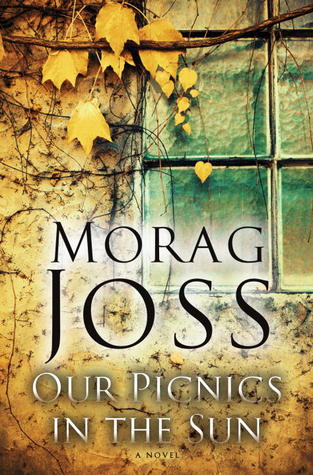My rating: 4 of 5 stars

In Five Years, a novel by Rebecca Serle, is more than a story. Reading it is an experience, with genuine emotional highs and lows. Protagonist Danielle Kohan is a 30-something woman who is the very definition of the type A personality. A corporate attorney living in NYC, Dannie is about to land her dream job and become engaged to long term boyfriend David, and life is going exactly according to plan, thank you very much. In five years, they will be married, living in Gramercy Park, and living large. Returning home from their celebratory dinner and awash in champagne, Dannie falls asleep. In her dreams, she finds herself exactly five years in the future, in a loft apartment not her own, wearing a different engagement ring, in the company of Aaron, a movie star handsome man she’s never met before. The calendar on the wall tells her it’s exactly five years in the future. When she awakens back in her own time and place, Dannie is shaken to her core, unsure about whether she’s had a dream or a vision. What if what she experienced is real?
Up until this point, early in the plot, I wasn’t sure that I wanted to continue reading what seemed to be a rom-com, but now I was hooked. Dannie attempts to follow her carefully constructed life plan, but she isn’t very good and dealing with uncertainty, and soon there will be other changes that will submerge her into depths of hope and fear, anguish and despair, confusion and anger and depression. Serle is a very good writer, but the center of the novel contained too many emotional elements that I simply prefer not to deal with anymore when reading fiction. But that’s my preference; many other readers, judging from their reviews, don’t feel that way. At the final third of the novel, Dannie’s dream comes back into play in a very interesting way, so the plot was redeemed, and I was glad to discover how Dannie would fare, even though I came to not like her very much. I didn’t enjoy the subject matter, but I can appreciate the skill with which this author can put together a story.
View all my reviews







 Human trafficking has been much in the news lately, and this crime is rampant in Eastern and Northern Europe since the demise of the USSR left such a vacuum in its wake. In The Boy in the Suitcase, it’s a three year old who’s been kidnapped. His mother fears that he will be sexually abused, but, if possible, the fate planned by the kidnappers is even worse. Red Cross nurse and humanitarian Nina Borg discovers the child stashed in a locker at the train station, and begins a quest to rescue him and return him to his home, wherever that may be. He speaks no Danish, which compounds the difficulties inherent in the situation, and it isn’t long before some terrifying events take place.
Human trafficking has been much in the news lately, and this crime is rampant in Eastern and Northern Europe since the demise of the USSR left such a vacuum in its wake. In The Boy in the Suitcase, it’s a three year old who’s been kidnapped. His mother fears that he will be sexually abused, but, if possible, the fate planned by the kidnappers is even worse. Red Cross nurse and humanitarian Nina Borg discovers the child stashed in a locker at the train station, and begins a quest to rescue him and return him to his home, wherever that may be. He speaks no Danish, which compounds the difficulties inherent in the situation, and it isn’t long before some terrifying events take place. Victoria McQueen has access to “the shorter way” , a bridge that was removed years ago but that she can still locate when she wants to find something. She discovered her gift as a child, when looking for her mom’s lost bracelet. Now, as a troubled adult, she must use it to find and destroy a monster who preys on children. NOS4A2 is the story of her quest, which will turn into the most harrowing nightmare in a life filled with nightmares. Charles Manx is the monster’s name, and he cruises around at will in a vintage Rolls Wraith that sports the license plate NOS4A2 in honor of the vampire in an equally vintage horror movie. Manx’s current assistant is Bing Partridge, who speaks in rhyme and views himself as nice and normal despite having murdered his parents with a hammer. These two make up one of creepiest duos in modern literature. Over 500 pages of this lengthy novel lead up to an ultimate showdown in Manx’s “children’s paradise”, which he calls Christmas Land.
Victoria McQueen has access to “the shorter way” , a bridge that was removed years ago but that she can still locate when she wants to find something. She discovered her gift as a child, when looking for her mom’s lost bracelet. Now, as a troubled adult, she must use it to find and destroy a monster who preys on children. NOS4A2 is the story of her quest, which will turn into the most harrowing nightmare in a life filled with nightmares. Charles Manx is the monster’s name, and he cruises around at will in a vintage Rolls Wraith that sports the license plate NOS4A2 in honor of the vampire in an equally vintage horror movie. Manx’s current assistant is Bing Partridge, who speaks in rhyme and views himself as nice and normal despite having murdered his parents with a hammer. These two make up one of creepiest duos in modern literature. Over 500 pages of this lengthy novel lead up to an ultimate showdown in Manx’s “children’s paradise”, which he calls Christmas Land.